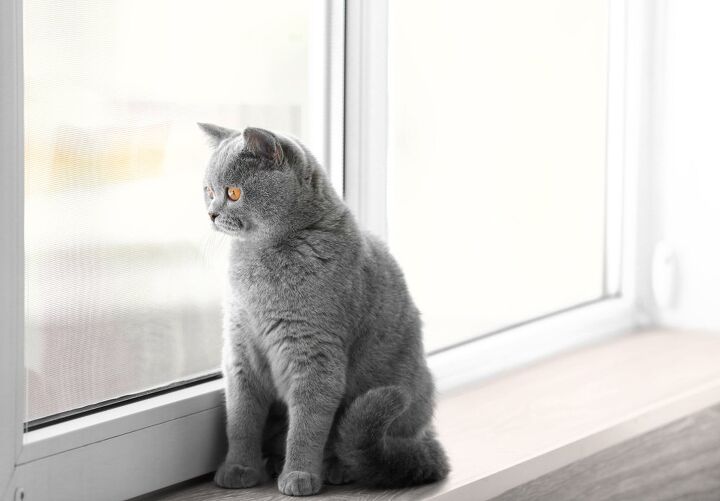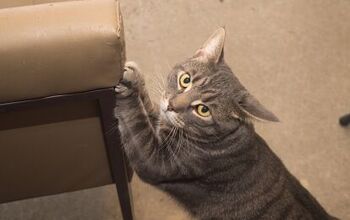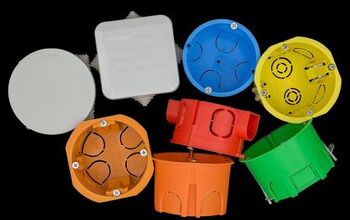Will A Landlord Know If I Have A Cat? (Here's What You Can Do)

Cat ownership is something that I really, truly enjoy. Eventually, I’ll probably get a cat of my own in my apartment. So far, I haven’t. This isn’t just because it’s a studio apartment, either. It’s because I worry about my landlords finding out and penalizing me for it. This brings us to the question today. Can a landlord tell if you have a cat?
In theory, it is possible to hide a cat from your landlord. However, it is never advisable and most landlords will eventually find out if you have a pet that you’ve been hiding from them. Hiding a pet from a landlord can result in eviction.
Trust me when I say I love toe beans and purring as much as the next guy. Though I adore cats, I also am aware that cat ownership is not always apartment-friendly. Here’s what aspiring cat owners should think of before they bring Fluffy home.
Do You Need To Tell Your Landlord If You Want To Own A Cat?
Your relationship with your landlord is written in your lease. In most cases, leases are going to say that you have to notify your landlord of any pets that you may have. Failure to do so means that you are breaking the terms of your lease.
Can Landlords Refuse To Allow Pets?
Yes, but there are limits to what they can reject. If your pet is an emotional support animal or a service dog, they do not have the right to reject the pet. Aside from medically-advised animals, your landlord has the right to have a strict no pets policy or to invite pets with open arms.
Can I Make My Cat An Emotional Support Animal?
Yes! To do this, you will need a doctor’s note explaining how your cat can provide you with emotional support and why you need it. This can be done through your GP, a psychologist, a psychiatrist, or a therapist in most states. They also have ESA pet services for this purpose.
How Would A Landlord Know If I Hid A Cat In My Apartment?
You might think you’re slick as the Teflon Don, but hiding a cat is not as easy as you think. Landlords will be able to notice a bunch of things…
- They may see your cat in the window. What kind of cat doesn’t sun itself in the window? It’s a dead giveaway and it only takes your landlord walking through your apartment’s area to see it. Most people who hide pets eventually have this happen to them.
- Your landlord’s maintenance crew will see the litterbox in most cases. This is usually the dead giveaway. Even if your litterbox is very well-hidden, most people will still smell it. If you can hide it super-well, then more power to you.
- Cat toys and food bowls are another major clue. Once again, if your landlord stops by and sees these, they will put two and two together. Yes, that cat tree is another major giveaway that you may have a pet by your side.
- Landlords with allergies might end up sneezing it out. This is common in situations where you have a landlord who lives in the same loft as you. Allergies are hard to control.
- Pet hair is another major issue that might tip you off. If you’re suddenly covered in white fur and have hairballs on your carpet, your landlord will notice.
- If your cat decided to stop using the litterbox, your landlord will smell and see the stains. I don’t care how effective pet stain remover is supposed to be, it still doesn’t work 100 percent of the time.
Why Wouldn’t A Landlord Want A Cat In Your Apartment?
Cats are adorable, but they are still animals. They can claw up walls, furniture, and carpets. They also can pee on flooring, spray on walls, and also hork up hairballs in the main living areas of your apartment. Most pet owners are responsible enough to clean after their cats, but not all are.
Along with the risk of damage to the apartment, landlords are fairly leery about pets due to the health risk they can incur. Cats carry allergens that could cause sensitive renters to have allergy attacks. If a cat bites or scratches a child, they may have to deal with a lawsuit. Moreover, if a cat gets fleas, it can make it harder for exterminators to get rid of the fleas in your building.
Can Landlords Legally Charge A Pet Rent?
While it may not feel fair to pet owners, many landlords will be happy to allow cats in your apartment as long as you pay a monthly pet rent. Some may also charge a move-in fee between $200 and $600. A typical monthly cat rent fee would rest between $20 to $50, per cat.
It’s important to note that landlords are not allowed to charge a pet rent for an emotional support animal. This is because the animal is there doing a job: keeping you healthy and happy. Since the animal is technically classified as a medical issue, they are not allowed to charge a rent for it.
What Happens If A Landlord Catches A Tenant Hiding A Cat?
Honestly, it’s not pretty. Most landlords do not take kindly to tenants who hide a pet. It’s not only a matter of the increased liability and potential damage. It’s a sign of disrespect. Here’s what can happen if you are caught with Fluffy:
- Your landlord will probably fine you. Most rental agreements already have fines written out for people who are caught harboring pets. This usually involves a daily fee until the animal is removed, plus a base fee that is there as a punitive measure. You may need to pay that fee to stay in your apartment.
- Your landlord may also have the right to sue you for damages. Any damage that is done to the apartment or to other people will be your liability. This means that your landlord might sue you based on what your cat does. Since you hid the cat, they will be more likely to sue you simply because they were not given the heads up needed to prep on their end.
- In many cases, this will be grounds for eviction. It’s up to the landlord to determine whether they want to evict you, but it’s still a penalty that could end up on the table. Landlords who are very strict or who view you as a nuisance neighbor may choose to evict you. If they ask you to leave, it’s best to listen to them as you do not want to have an official record of eviction on your name.
- Depending on your state and town laws, you might also get your animal confiscated from you. In the case of exotic cat breeds like Savannahs or Servals, animal control may be called. You might not see your pet again. In very drastic situations, they may also ask for the cat to be put to sleep.
- In other cases, your landlord might also simply choose to not renew your lease contract at the end of the year. This is a common way for landlords who are more polite and/or lenient to handle this.
The bottom line is that this will put you at odds with most landlords. Unless you have a sterling relationship with your landlord, you should prepare for the worst if you’re caught. Since there are other ways to go about pet ownership, I strongly advise against trying to hide a cat.
Related Questions
Can your landlord request that you spay or neuter your pet?
Yes, your landlord can have a request for your pets to be spayed and neutered. In fact, it’s common practice to have a landlord add a spay and neuter requirement for all pets. You will be expected to show papers proving that your pet was fixed in order to keep them in your apartment. Thankfully, spaying and neutering pets is a pretty easy and cheap procedure.
Can a landlord ask you to give up a pet they previously approved?
This is a bit dicey, but the answer to this is also yes. A landlord has the right to “evict” a pet if the pet has proven to be a serious nuisance. For example, if your dog or cat has attacked a guest at the apartment or tried to attack a maintenance crew member, they may have grounds to ask you to remove the pet.In most cases, it takes multiple complaints from neighbors to have a pet forcibly removed. There also are court proceedings involved in the matter.
How do you get cat urine out of a carpet?
Cat urine can generally be removed using an enzymatic cleaner, followed up by a vinegar treatment. If your carpet was very weak. then you may also need to hire a professional carpet cleaner to finish up the job. Treat the stain as soon as you see it. Otherwise, you will be stuck with discoloration regardless of who you hire.

Ossiana Tepfenhart is an expert writer, focusing on interior design and general home tips. Writing is her life, and it's what she does best. Her interests include art and real estate investments.
More by Ossiana Tepfenhart













![10 Best Electric Lawn Mowers - [2022 Reviews & Top Rated Models]](https://cdn-fastly.upgradedhome.com/media/2023/07/31/9070486/10-best-electric-lawn-mowers-2022-reviews-top-rated-models.jpg?size=350x220)













